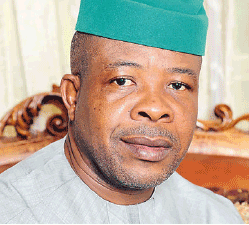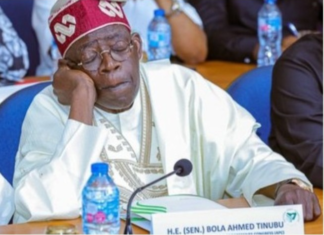Data from the West African Examination Council (WAEC), National Examination Council (NECO) and Joint Admission and Matriculation Board (JAMB) show that the standard of education in Imo State is low despite the free education policy introduced by Governor Rochas Okorocha.
While some analysts blame this on system failure traceable to past governors, others attribute it to the absence of a blueprint on education by the Okorocha administration.
Neccesity of blueprint
A blueprint, if well designed and implemented, will correct the mistakes of the past, guard against repeating them, and chart the way forward.
The lack of such document in the past three years has given rise to the belief that Okorocha’s free education policy is a political tool without the intention to achieve quality.
The consequence includes inadequate funding for the Ministry of Education and the Secondary Education Management Board.
In the 2013 WAEC result, students from Imo State scored 46 per cent, Anambra 67 per cent and Abia 65 per cent.
Causes of failure
Emeka Ihedioha
House of Representatives Deputy Speaker, Emeka Ihedioha, said the quality of education in Imo “is of primary concern to us as stakeholders” because no society can make meaningful progress without an educated population.
He bared his mind when he presented science equipment to secondary schools in the state at a ceremony held at the Holy Ghost College, Owerri.
“We talk about education that would lead to self reliance. We are talking about education that will lead to industrial and technological progress of our dear state,” Ihedioha advocated.
“Sometime ago, a group of experts was commissioned to study the level of preparedness by secondary schools in Imo State in terms of equipment, reagents, materials and qualified teachers in both basic and advanced sciences.
“The findings of that exploratory study showed that funding for science education in Imo State was abysmally low.
“The implication of this was that students in the state secondary education system could complete their education without exposure to the basic experiments required of them in the sciences.
“It is little wonder then that there has been massive failure of Imo students in subjects like chemistry, physics biology, technical drawing, basic technology and mathematics.”
There are 67 private and 28 government secondary schools across the 27 councils in the state, each of which Ihedioha gave science equipment in collaboration with the Scientific Equipment Development Institute (SEDI), Enugu.
Teachers’ incentives years past
Ihedioha recalled years past when science teachers in the state were paid incentives, which made them earn higher than other teachers, and motivated them to give their best.
“Realising these deficit in our schools, I decided to make my own contributions towards solving the problem.”
He reiterated that human capacity building is the cornerstone of democracy and urged Imo students to compete favourably in the scientific and technological transformation of the world.
Initiatives by Ihedioha
“Since my election into the House of Representatives in 2003, I have completed 45 human capacity building projects across Imo State while four are at various stages of completion in 2014.
“I have also successfully carried out six human capacity building programmes aimed at empowering Imo State women and youths. A total of 1,607 people have benefited.”
Ihedioha added that under his auspices, 50 Imo youths have been invited to another three months’ training in various fields at the Metallurgical Training Institute Onitsha.
Some have also benefitted from his Education and Youth Development Initiative through:
• Studies at the Science Equipment Development Institute (SEDI), Enugu.
• Agricultural training and empowerment for women and youths and the National Roots Crops Research Institute (NRCRI), Umudike, Abia State.
• Skill acquisition and empowerment for women and youths.
• Training of youths and women in fisheries and feed making at the Federal College of Fisheries and Marine Technology, Lagos.
Promise of quality education
Ihedioha said if elected governor in 2015, he will retain the free education policy of the present administration in a restructured and transparent manner to achieve greater efficiency and productivity.
He pledged to place more emphasis on technical and vocational education as one of the ways to reduce unemployment.
Technical colleges will be provided functional equipment and workshops, he added, as the National Policy on Technical Education wants graduates of technical colleges to get jobs easily having acquired skills in demand in industry.













